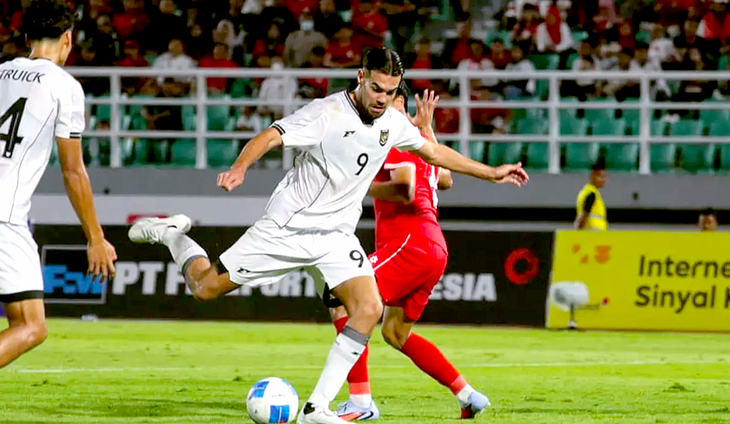
The quality of the U23 Indonesian players is low, so they cannot meet expectations about the team's playing style - Photo: BOLA
At the 2025 Southeast Asian U23 Championship that just ended at the end of July, host U23 Indonesia lost to Vietnam in the final match.
In terms of targets, this is a heavy defeat for U23 Indonesia, especially when they play at home. Meanwhile, U23 Malaysia caused great disappointment when they were eliminated early in the group stage of the 2025 Southeast Asian U23 Championship.
The quality of young players is too bad.
Not only that, in the opening match of the 2026 AFC U23 Championship qualifying round on the evening of September 3, U23 Indonesia was held to a 0-0 draw by Laos. Meanwhile, U23 Malaysia lost to Lebanon 0-1. These defeats have made the chances of U23 Malaysia and Indonesia qualifying for the 2026 AFC U23 Championship finals very narrow.
That is because U23 Malaysia and Indonesia are at a big disadvantage in winning the top spot (the only direct ticket to the final round). At the same time, it is also very difficult for them to think about competing for the 4 excellent second-place spots due to the aforementioned bad start.
There are many reasons why U23 Indonesia and Malaysia did not achieve the desired results. But in general, both teams have the same problem: their playing style is too monotonous, lacking creativity and has not made any progress for a long time.
Looking at the performance of U23 Indonesia against Laos, football expert Gusnul Yakin (Indonesia) had to bitterly exclaim: "I see that coach Gerald Vanenburg did not help U23 Indonesia improve. He did not learn any lessons for the team."
Meanwhile, the Malay Mail (Malaysia) newspaper described U23 Malaysia as "a team that doesn't know how to attack". U23 Malaysia was even called "toothless tigers" by the country's press. It is difficult to expect U23 Malaysia and Indonesia to play well, because both teams do not have truly quality players in their squads.
Player naturalization policy in doubt
However, the weakness of U23 Indonesia and Malaysia would not be a topic of discussion among fans if these two football countries did not apply the "naturalization of players" policy to strengthen the national team.
The question is, with the current quality of young players, where will Indonesian and Malaysian football go? Are Indonesia and Malaysia really paying adequate and proper attention to youth football? Or are they chasing after virtual values with an extreme desire to achieve success?
After this generation of naturalized players, Indonesia and Malaysia are on the brink of collapse, with Singapore being a prime example. The poor performance of Indonesian and Malaysian youth football becomes even more dismal when placed next to Vietnam and Thailand.
In the face of the massive wave of naturalization in Southeast Asian football, Thailand and Vietnam remain steadfast in their policy of developing football from the root: focusing on investment, training and development of youth football.
This path may be arduous at first and may cause the impatient to give up. But in the long term, it is the right choice. Indonesian and Malaysian football clearly need to adjust their strategies soon if they do not want to collapse, a systemic collapse due to the lack of strategy in football.
Source: https://tuoitre.vn/vong-loai-giai-u23-chau-a-2026-chinh-sach-nhap-tich-bi-hoai-nghi-20250905094727233.htm




![[Photo] Prime Minister Pham Minh Chinh attends the 80th anniversary of the founding of Voice of Vietnam Radio Station](https://vphoto.vietnam.vn/thumb/1200x675/vietnam/resource/IMAGE/2025/9/7/abdcaa3d5d7f471abbe3ab22e5a35ec9)

![[Photo] Impressive display booths of provinces and cities at the Exhibition 80 years of the Journey of Independence - Freedom - Happiness](https://vphoto.vietnam.vn/thumb/1200x675/vietnam/resource/IMAGE/2025/9/7/cd63e24d8ef7414dbf2194ab1af337ed)





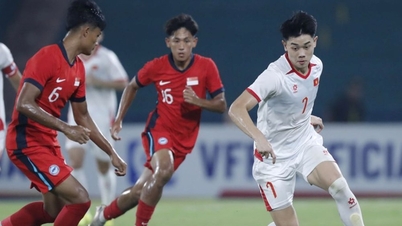

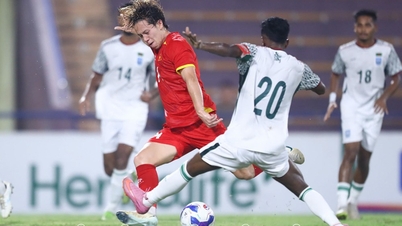
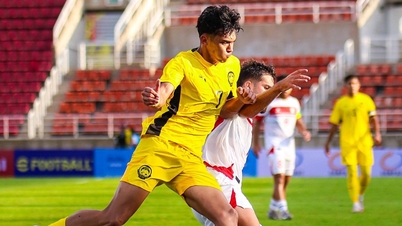



















![[Photo] General Secretary To Lam attends the 55th anniversary of the first television program broadcast](https://vphoto.vietnam.vn/thumb/1200x675/vietnam/resource/IMAGE/2025/9/7/8b8bd4844b84459db41f6192ceb6dfdd)
















![[Highlight] VIMC's mark at the National Achievement Exhibition](https://vphoto.vietnam.vn/thumb/402x226/vietnam/resource/IMAGE/2025/9/7/932133a54d8b4becad48ef4f082f3eea)






![[COMING UP] Workshop: Resolving concerns for Business Households about eliminating lump-sum tax](https://vphoto.vietnam.vn/thumb/402x226/vietnam/resource/IMAGE/2025/9/7/5627bb2d0c3349f2bf26accd8ca6dbc2)


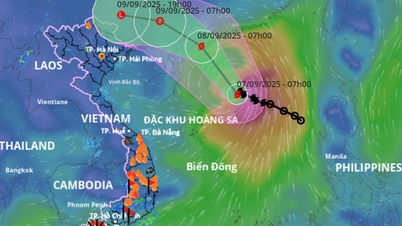








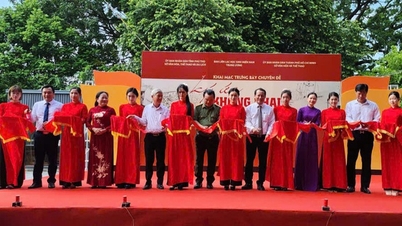


















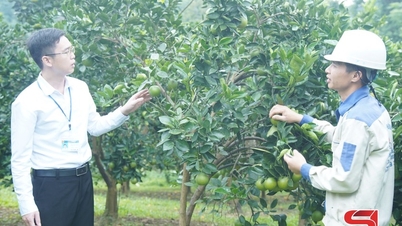











Comment (0)